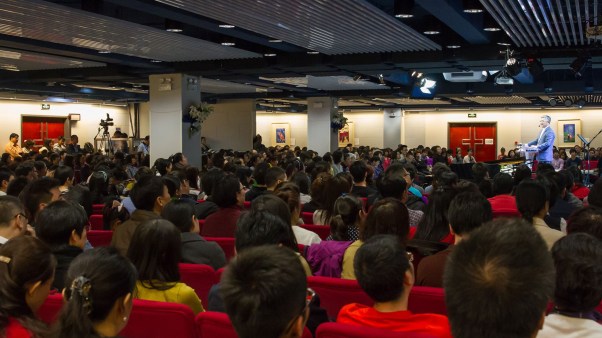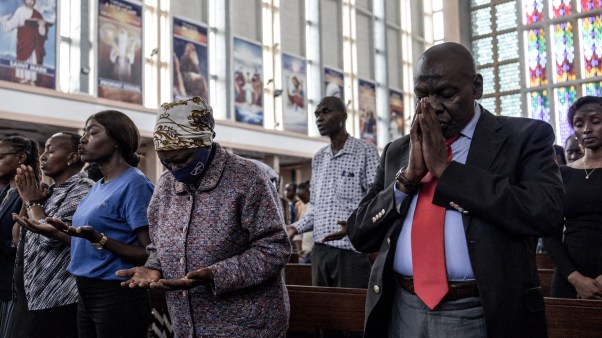I recently received four blush bridesmaid dresses in the mail. The first was a floor-length formal with a corset so tight I almost blacked out trying to wriggle my way out of it. One was strapless and too plain. Another I refused to even try on after seeing the jewel accents. And the last was a halter number that looked far better on the hanger than it did on me. As the summer wedding creeps ever closer, I choose to distract myself from my lack of a plus-one with the hunt for the perfect bridesmaid dress. With this being my eighth time as a member of the wedding party and my eighth time going solo, I’ve resolved to do it in style.
This was never the life I imagined. My friends and I often sit around wondering how we got here. What boys did we pass up? What mistakes did we make? What routines did we neglect, leaving us sleeping alone while the ticking of our biological clocks lulls us into fitful dreams? I don’t feel equipped for singleness. All the youth group dating advice was predicated on the idea that marriage was in my future, that if I made all the right choices, kept myself pure, and sought after God, he would reward me with a husband. I’ve only recently gotten to a place where I can ask myself, But what if he doesn’t?
Somehow, despite many friends getting married, the single among us are still here, clinging to a community that seems to view us as more of a nuisance than a necessity. And we long for a place in the church—besides standing up at the altar while other people’s vows are being exchanged.
Gina Dalfonzo has lived this storyline as well, but a bit longer and with more grace than I have. As a lifelong single, she’s endured passive-aggressive advice, negligent married friends, hurtful generalizations, and the inevitable shaming that comes with prolonged singleness. The path just wide enough for one is familiar to her feet, though not always welcome. But bitterness has no place in Dalfonzo’s journey, and that alone is refreshing.
Her book, One by One: Welcoming the Singles in Your Church, is the result of extensive interviews, hours of research, and years of living the harsh realities the book describes. Dalfonzo highlights the experiences of others as she discusses the state of singleness, touching on everything from the stereotypes and stigmas of the unmarried to the hope we have for a unified church that seeks to celebrate every phase of life.
The Family-Centered Church
With One by One, Dalfonzo goes where few dating books have even tiptoed in the past. With refreshing boldness and clarity, she weaves together interview responses, family history, classic texts, online articles, and personal anecdotes to create a tapestry detailing where we are, where we could go, and how we could get there. But for Dalfonzo’s book to make a mark, we have to first acknowledge a foundational truth: Many churches are proudly family-centered, and while this purpose aligns well with the American dream, it does little to welcome those of us who don’t fit the same mold.
We have built a church whose programming and language seek to include the six-year-old son of a busy mother at Bible study while extending no invitation for the single woman who teaches his Sunday school class. We have married pastors planning the few events for singles, often mixers designed to marry us out of the singles’ class. We try to fix singleness with indiscriminate advice like “God will bring someone when you stop looking” or “Maybe you need to put yourself out there more.” We throw around clichés instead of offering comfort, and we rarely allow room to acknowledge the suffering that comes with longing to be married.
Dalfonzo discusses all of these issues and more, and she does so in a way that engages those on the outside—church leaders, pastors, married friends, and others who may have forgotten, or never known, the struggle of being single. She describes the various ways people minimize our experiences or overlook our accomplishments because they aren’t traditionally accompanied with a shower of some kind. (Perhaps, as Dalfonzo suggests, they should be.) She offers a peek behind the curtain of what it’s like to be single in today’s church—to mingle about during coffee hour with no one to speak to, to be seated at the physical and metaphorical children’s table, to be expected to serve with every free second because that’s the perk of not having a husband and kids, right?
Dalfonzo often draws attention to the more hurtful aspects of being unmarried in the church by posing thoughtful hypotheticals:
The next time you hear a Christian equate marriage with godliness, or say something about marriage and children being the best things in life, or express the thought that “you’re not complete unless you’re married” . . . stop a minute and consider these ideas from the perspective of a person who’s single and childless, and not necessarily by choice. Imagine how brutally they might fall on your ear if you had no spouse and no children.
With humility and goodwill, Dalfonzo seeks to expose the shortcomings of many churches’ relationships with single people by humanizing the experience of so many of us, taking the single person from a caricature to a crucial member of the body.
Perhaps most astute is Dalfonzo’s exploration of how the church contributes to our dating dilemmas. She begins where we all must—with a man in a hat, posing on the cover of Joshua Harris’s I Kissed Dating Goodbye. I know I’m not the only girl who spent her teenage years writing letters to her future husband and signing purity pledges that spoke of my love and commitment to him (and by “him,” I don’t mean Jesus). Harris’s book bred a culture of courtship, where innocent dates became interviews for spouses as teens began to embrace “marriage-centered dating,” which revolved around parental involvement and group activities. When marriage becomes the only aim of dating, every date that doesn’t move you a step closer to the altar can feel like a failure.
Surveying some of the most prominent titles from the courtship genre, Dalfonzo points to the divorces of certain early advocates and highlights the rigid gender roles and expectations these books reinforce. Thankfully, some, like Harris, have walked back their stances, admitting that courtship is not one-size-fits-all and opening the door for frank discussion of its downsides.
One by One teaches us how to repair the damage. Instead of envisioning every single person as someone’s potential spouse, Dalfonzo works to restore the integrity of the individual—she highlights the value unmarried people add to companies, organizations, and families. She emphasizes the church’s need for single people and the biblical value given to their lives and ministries.
God’s Sovereignty in Singleness
Dalfonzo sympathetically presents the plight of the unmarried, detailing the dating minefield of setups and online matches, alluding to the sexual frustrations that come with celibacy, and summarizing some of the many misconceptions surrounding singleness. In the church, certain assumptions are made about older single people: They’re weird or lack emotional intelligence; they’ve been dating the wrong way; or they’re held back by character defects or unresolved sin.
All these stereotypes, Dalfonzo reminds us, are inaccurate. Singleness is not the problem—inability to see God’s sovereignty in singleness is. Dalfonzo precariously balances her commitment to the church with her frustration over the ostracizing and “othering” of single people.
Toward the end of her book, Dalfonzo writes, “So maybe single Christians and married Christians can help each other learn to live counterculturally in a world where we often find ourselves on the outside. But in order for this to happen, single Christians need to be allowed more of a voice in the church.” If you’re looking to take time and listen to the trials and fears that come with being an unmarried woman in a marriage-centric church, One by One is an excellent place to start.
A good friend of mine is in the middle of a years-long struggle with infertility. The other day she was describing her frustration and anxiety, along with her ever-growing desire to start a family. As we wept together, because I share that same unmet desire, my friend choked out a teary, “I didn’t know it was like this for you too.”
While the nuances might play out differently, at the end of the day we all carry many of the same burdens. In working to cultivate understanding and empathy, in acknowledging that not all singles are created equal, and in restoring honor and respect (instead of suspicion or pity) to those who are unmarried, the church is moving toward a unity that will only be fully realized in heaven. As Dalfonzo suggests, simply seeking out single voices and encouraging their involvement in your church are good first steps.
As I try on four new dresses this week, it’s with Dalfonzo’s words ringing in my ears: My value is not elevated by wedding vows. Singleness is not symptomatic of deeper issues I need to address. And while flying solo can leave me feeling bruised and battered by life’s rough winds, it’s comforting to know I’m not alone. Ultimately, the church can inflict wounds, or it can mend them. If Dalfonzo’s hope is any indication, we’re headed toward healing.
Joy Beth Smith is a writer and editor living in the Chicago suburbs. Her first book, on singleness and sexuality, is set to release in early 2018. Follow her at @JBsTwoCents.











